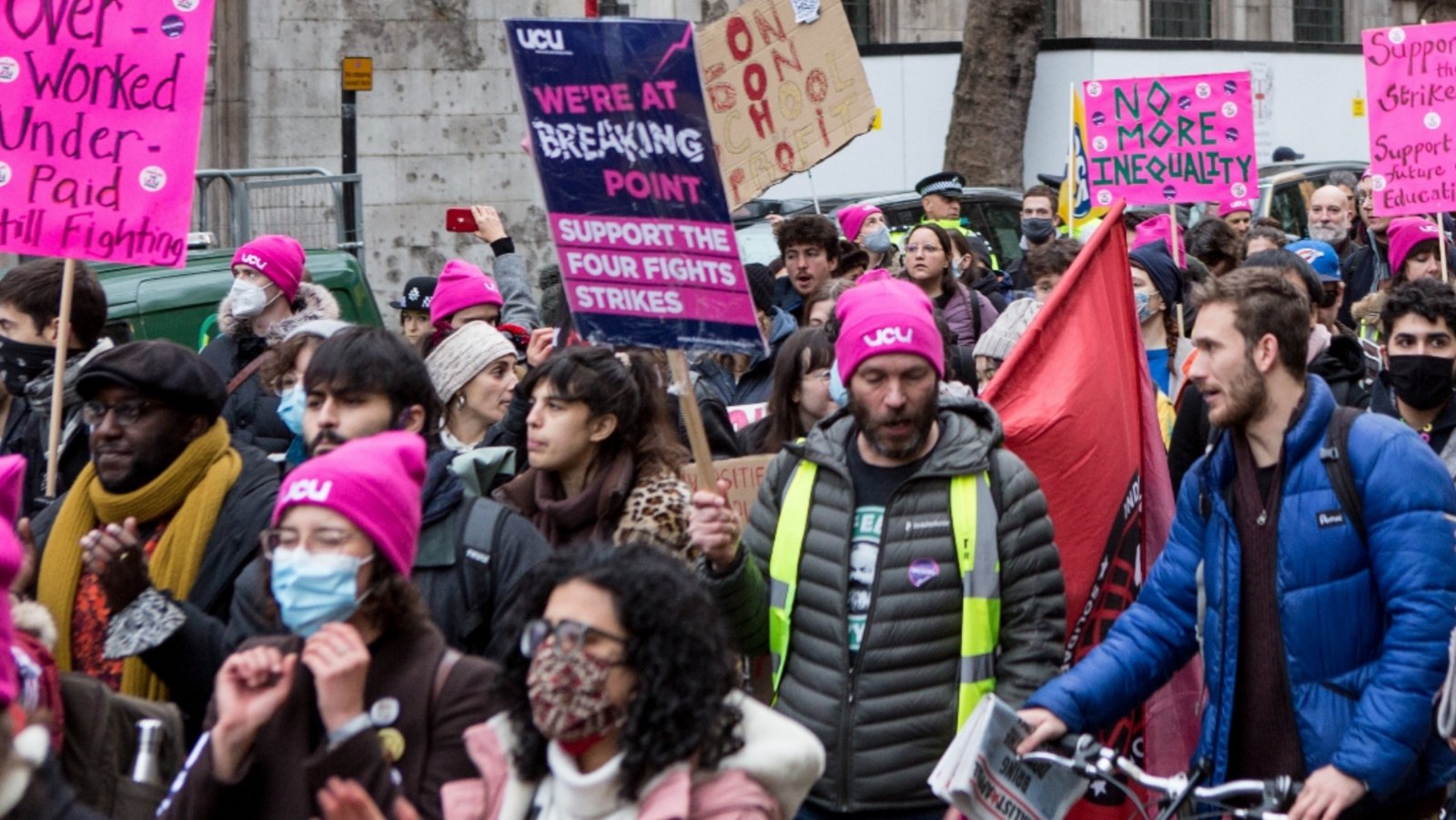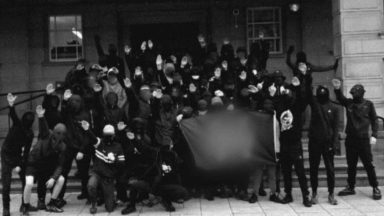Students could soon be awarded degrees without having their 10,000-word dissertations marked under measures being considered by Scotland’s biggest university.
The University of Edinburgh announced potential plans to base final grades on work already submitted in response to a marking boycott from lecturers, which it said would minimise disruption.
It’s the latest phase of industrial action by the members of the University and College Union (UCU) across 145 UK institutions amid a dispute over pay and conditions.
More than 500 staff at Edinburgh signed an open letter condemning the proposals which they say pose a “serious threat” to the integrity of its degrees.
But it’s not just lecturers who are concerned.
Students have expressed outrage over potential delays and changes to the way exams could be marked.
 UCU
UCULiberty Phelan is a 4th-year English literature student at Edinburgh University.
The 22-year-old has already submitted her dissertation and two final essays but worries they will never be looked at.
STV News understands the university intends to “read and mark” every piece of work, though not all assessments will meet the current time frame.
But Ms Phelan doubts whether markers will have enough time, given the backlog.
“I don’t even know how they can get the marking done even if they resolve it tomorrow,” she told STV News. “It’s really worrying.
“What I’ve heard for the options they’re considering is relaxing the credit requirements, so all that work, which is 16,000 words, just wouldn’t count.
“That’s unacceptable. It doesn’t mean anything if you can just give it without counting a huge chunk of work.”
For many students at university, their dissertation is the single most important piece of work they will ever write.
 Liberty Phelan
Liberty PhelanMs Phelan explains: “It’s your chance to do work that’s meaningful to you and a lot of people consider it their best work.”
As an English student from London, Ms Phelan isn’t entitled to free tuition. She is worried that tens of thousands of pounds of debt racked up by her education won’t result in a degree classification amid concerns students could be offered a binary pass or fail mark.
“When there’s a train strike and your train is cancelled you get your money back,” she said. “But that doesn’t happen with universities.
“As students, we don’t have any power in this argument so we are always the ones that get screwed over and it’s been like that throughout my whole time at university.
“It’s annoying being in a lot of debt for it but I think all of us care about the work we’ve done and we want to get our mark for it.”
STV News understands that the university does not intend to “downgrade” any degree grades that were subject to an initial award based on previously submitted work.
Phelan said students were, on the whole, supportive of staff. Their main concern, she said, is whether the dispute will be resolved and if their submissions will ever be marked.
Fraser MacDonald, a lecturer in historical geography at Edinburgh said he understood why students are angry.
“They have every reason to be,” he told STV News.
“The generation that has suffered the most in the pandemic may now be told that all their work in 2023 literally doesn’t count. It’s devastating.
“Most students realise that a boycott is an act of last resort for the UCU, that the dispute has been years in the making, and that staff and students alike are casualties of management intransigence.
“It’s grim to see university leadership cutting salaries to pay for shiny new buildings yet with billions in reserves – all the while letting students suffer the consequences.
“It suggests a crisis of governance in Scotland’s universities that warrants Parliamentary scrutiny.”
David Farrier, a professor in literature at the University of Edinburgh, said it was academics at the start of their career who have it worse, facing low pay and precarious employment.
He said: “The university sector as a whole is hugely reliant, I’d even say addicted, to short-term contracts.
“It’s extraordinarily difficult at the early stages of your career now to find the kind of security that gives you a piece of mind and relieves you of the anxiety of wondering where your next job will be.
“And that plays out in the classroom in ways that not always be obvious but if a teacher is distracted by these concerns of course it will impact students.
“I know students have told me about the enormous strain that some of their tutors are going through.”
Professor Farrier said he is “desperate” to get back to marking but said the boycott is needed to get concessions from the university.
“No one undertakes this action lightly,” he said. “But we feel the current situation with working conditions and with pay, particularly at the early stages of careers, is unsustainable.
“It’s not in the interest so the students now or in the future to let it go on.”
The boycott is not without punishment. Lecturers taking part in the action have been hit with a 50% pay cut by the university, and in other institutions, it’s even more.
But Professor Farrier said he was “determined” to see the action through, and that moral remained good.
The UCU has urged the university to “come back to the negotiating table with an improved offer.”
A University of Edinburgh spokesperson said it has “robust” measures in place to reduce the impact of industrial action.
The university said: “We are making every effort to provide results, degree award outcomes and progression decisions to students by the published timelines.
“Marking and returning marks on assessed work is being treated with the highest possible priority.
“At Edinburgh, the boycott is being taken by a small proportion of staff in some academic areas.
“Additional measures are being implemented across higher education institutions to ensure students’ ability to learn, progress and graduate is not compromised, while maintaining academic standards.”
The spokesperson said a range of “temporary variations” will provide greater flexibility to marking assessments.
They continued: “These are accompanied by conditions of use to ensure that academic standards are not compromised.
“Such variations will only ever be used in the event that activities have been significantly disrupted by industrial action and only when it is not possible to mitigate this using existing provisions of regulations and policies.”
Follow STV News on WhatsApp
Scan the QR code on your mobile device for all the latest news from around the country


 Liberty Phelan
Liberty Phelan






















